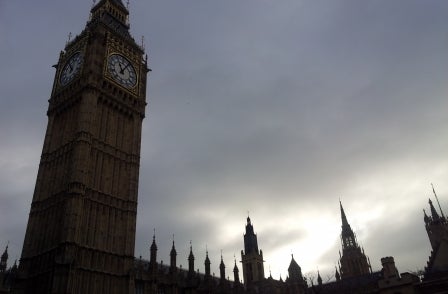
Libel reform campaigner Lord Lester and Privy Council member Lord Rooker are among a number of public figures to voice concerns about Parliament’s press regulation plan.
Writing in The Guardian Rooker, a member of the Privy Council, condemned the use of a Royal Charter agreed by this ancient body to regulate the press.
He said: “The Privy Council's oath prevents discussion of its proceedings….It is technically possible for a privy council to conduct business with a couple of Lords ministers and a member of the royal household who happens to be a privy counsellor. Not an elected politico in sight! And we are expected to buy this as delivering Leveson? Thanks, but no; this privy counsellor is not buying it.”
Liberal democrat peer Lord Lester said in a letter to The Times: “At a time when politicians are determined to treat the press, like the East India Company, as governed by Charter and Act of Parliament, it is important that there is a well-informed debate.
“In my view, some of the Leveson proposals, now embedded in two statutes, threaten the freedom of expression of the press and the public in breach of Article 10 of the European Convention on Human Rights.
“The British press is subject to our plentiful criminal and civil laws. There is no need for further state intervention, as proposed by the ‘Hacked Off’ celebrity campaigners. We need a system of independent self-regulation that encourages professional standards and provides effective redress, avoiding unnecessary litigation.”
Parliament’s press regulation Royal Charter is underpinned by two pieces of legislation which threaten non members of an approved regulator with exemplary damages in court cases and which required a two-thirds majority of both Houses of Parliament to change the system.
Dr Tony Cole, a paediatrician who helped persuade ministers to conduct an inquiry into the way the NHS was using the Liverpool Care Pathway to treat the dying, said it would never have "got off the ground" were it not for the media exposure.
Speaking at the Royal College of Medicine on Saturday said: "Had it not been for the press, the relatives who have suffered would not have been able to link up and get their stories heard.
"That's why you need a free press."
Newspaper publishers have yet to agree a response to the Parliamentary press regulation plan.
The key area of concern lies around the underpinning statute which means a two-thirds majority of both Houses of Parliament can change the Royal Charter in future.
While politicians believe that this sets the system in stone, many senior journalists fear that this could be used in future by politicians to create a more oppressive regulation regime.
Writing in the Daily Mail today, author Robert Harris noted how framed French artillery officer Captain Alfred Dreyfus was ultimately cleared thanks to whistle-blowing and muck-raking journalism in 1897.
He said: "If the French press had been regulated in the 19th century in the way we propose to regulate ours in the 21st, I have a horrible suspicion Dreyfus would have died on Devil's Island."
Email pged@pressgazette.co.uk to point out mistakes, provide story tips or send in a letter for publication on our "Letters Page" blog
